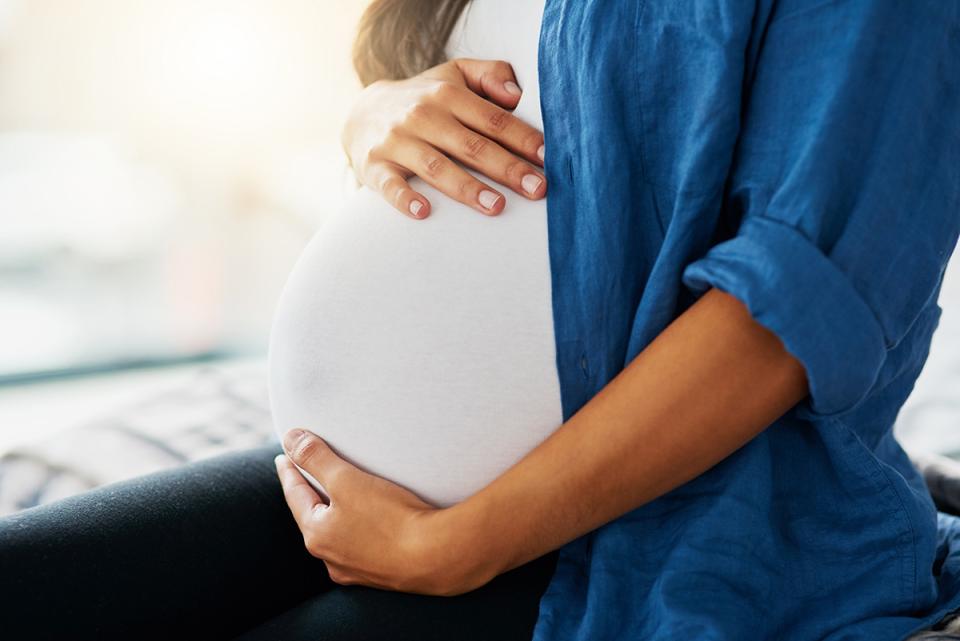Q. What should I do if I think I have COVID-19 while I am pregnant?
A: If you are pregnant and are experiencing symptoms of coronavirus, you should call your obstetrician. You can also call 623-580-5800 so we can direct you to the best place for care. Depending on the severity of your illness, you may be recommended to stay home and self-quarantine while treating your symptoms with over-the-counter medications. If you have a severe illness, you may need to be admitted to the hospital for management of your symptoms. If you are experiencing a medical emergency, call 911.
Q. If I get COVID-19 while pregnant, how might it affect my unborn baby?
A: Although the absolute risks are low, data shows that mortality, preterm birth and NICU admission are all elevated in pregnant women who have had COVID-19 infections. If you do get sick, try not to panic. Call your obstetrician to determine your care plan. They may want to monitor your baby more closely for the rest of your pregnancy.
According to the CDC, most newborns of people who had COVID-19 during pregnancy do not have COVID-19 when they are born. Some newborns have tested positive for COVID-19 shortly after birth, but we don’t know if they got the virus before, during or after birth. Most newborns who tested positive for COVID-19 had mild or no symptoms and recovered, though some newborns do develop severe illness.
Q. What over-the-counter medications can I take for symptoms associated with coronavirus while I am pregnant?
A: For mild symptoms, it is safe to take several over-the-counter medications in pregnancy. For symptoms of fevers, chills or body aches, it is safe to take acetaminophen. One gram of acetaminophen (two 500mg tablets) every six hours can help decrease a fever. If you have a cough, cough syrups are safe in pregnancy. For congestion or runny nose, anti-allergy medications like fluticasone propionate, cetirizine, guaifenesin and fexofenadine or other anti-allergy medications can help alleviate symptoms and are also safe for use in pregnancy.
Q. Can I breastfeed if I am positive for COVID-19?
A: Yes, you can breastfeed if you test positive for COVID-19. Current evidence suggests that breast milk is unlikely to spread the virus to your baby. Always wash your hands with soap and water for 20 seconds before breastfeeding or expressing breast milk – you should do this whether you have COVID-19 or not. You should also wear a mask while breastfeeding or whenever you are within six feet of your baby if you have COVID-19.
Q. What is the current visitor policy for HonorHealth facilities? Is it different for labor and delivery and postpartum?
Q. Will I be tested for the coronavirus (COVID-19) when I go into labor?
A: Out of an abundance of caution, we are testing all maternity patients. If you are having a C-section or induction, you will be screened two to three days before you are admitted. All other patients will be screened upon admission.
Q. Should I get vaccinated for COVID-19 while I am pregnant?
A: The American College of Obstetricians and Gynecologists and the Society for Maternal-Fetal Medicine, the two leading organizations representing specialists in obstetric care, recommend that all pregnant individuals be vaccinated against COVID-19. None of the currently available COVID-19 vaccines reach or cross the placenta. However, protective antibodies to COVID-19 have been shown to cross the placenta and confer protection to the baby after delivery. Discuss the benefits of COVID-19 vaccination during pregnancy with your physician. You can also read more about vaccination during pregnancy or while breastfeeding.
Q. If I am pregnant, should I be going to work?
A: Yes, you can still work if you are pregnant. There are no specific recommendations from the CDC or the American College of Obstetricians and Gynecologists against pregnant women in the workforce during this pandemic. It is recommended that you strictly follow proper hand hygiene, masking and avoid groups of people larger than 10.
Q. I am pregnant and a healthcare worker. Can I work with patients that are possibly infected with COVID-19?
A: Yes, you can work with patients that are possibly infected with COVID-19, but like all healthcare workers, you should adhere to all current infection control guidelines within your healthcare facility. If you are able to avoid working with patients who are positive or suspected to be positive for COVID-19, that would be ideal, but in some cases that will not be possible.
Q. Is it safer to deliver my baby at home during this pandemic?
A: We believe that delivery at a hospital is the safest place for you and your baby. Extensive precautions are taken to prevent the spread of the infection at HonorHealth. Our team members are trained on how to best prevent infection and safely support you and your baby through your labor. In the hospital setting, we are prepared to respond quickly to any complications that may arise with you or your baby during your labor. It is not advised to deliver your baby at home.
Note: This article was last reviewed on July 26, 2022. We will continue to update it as new information becomes available.
